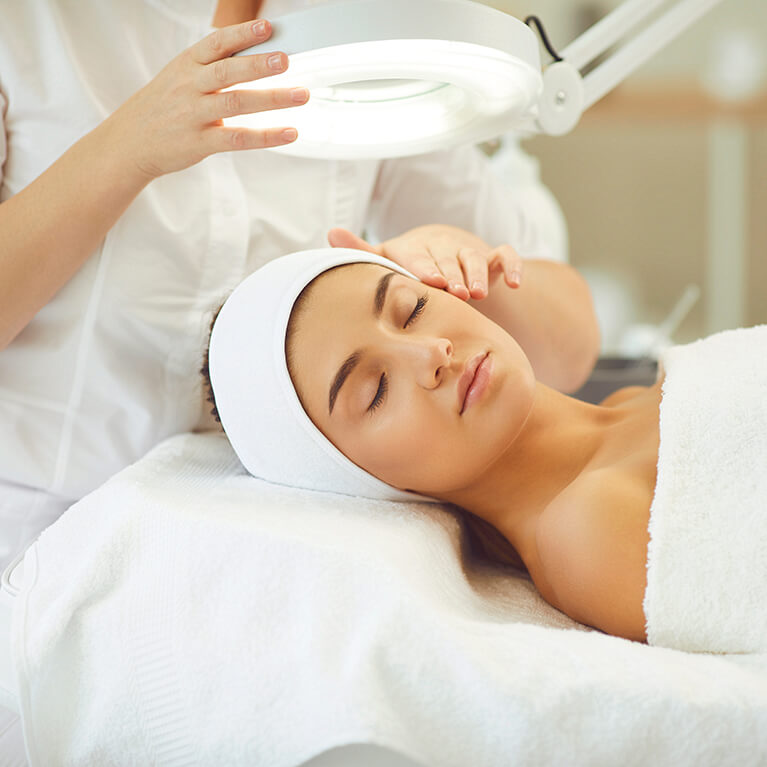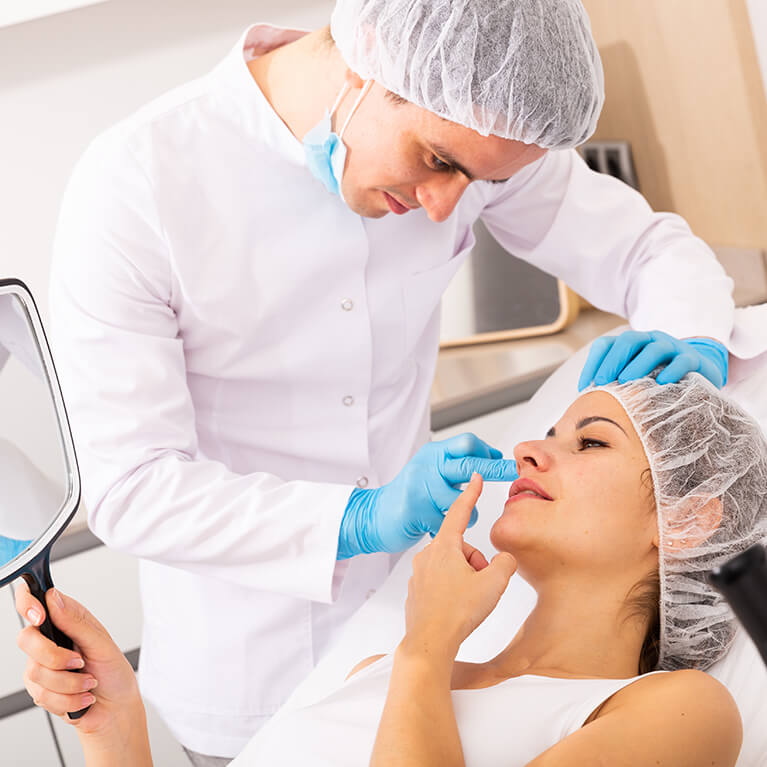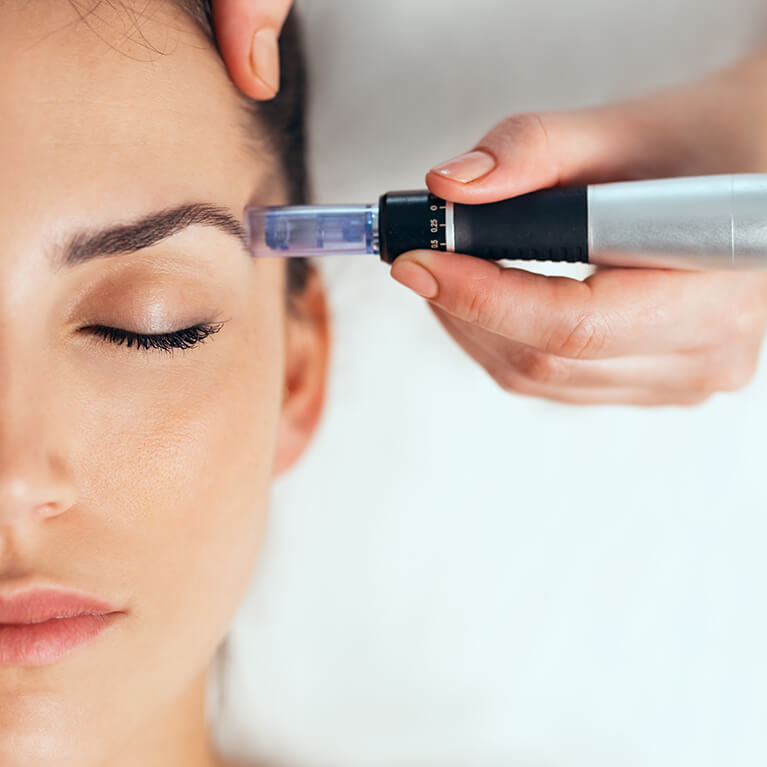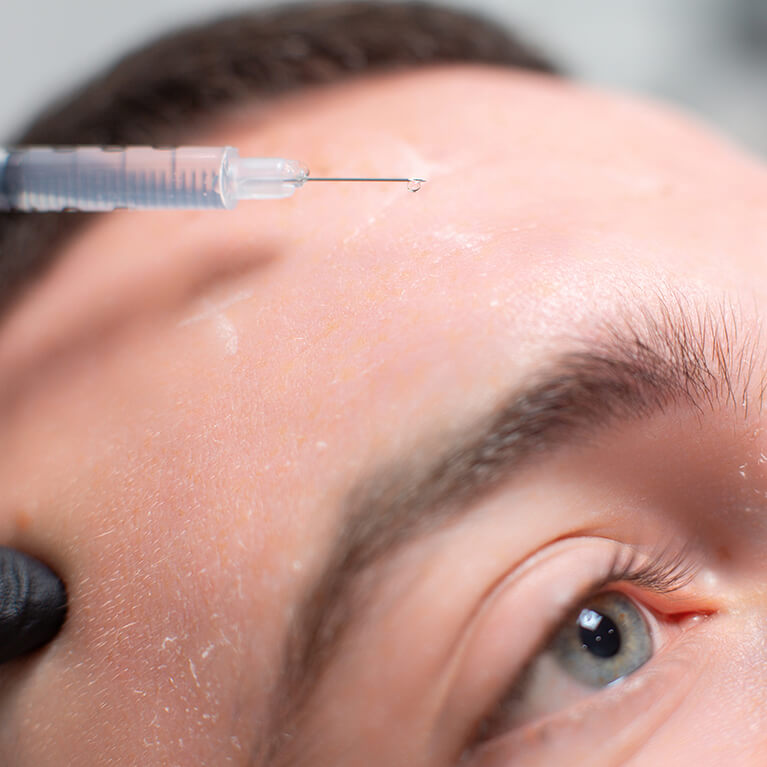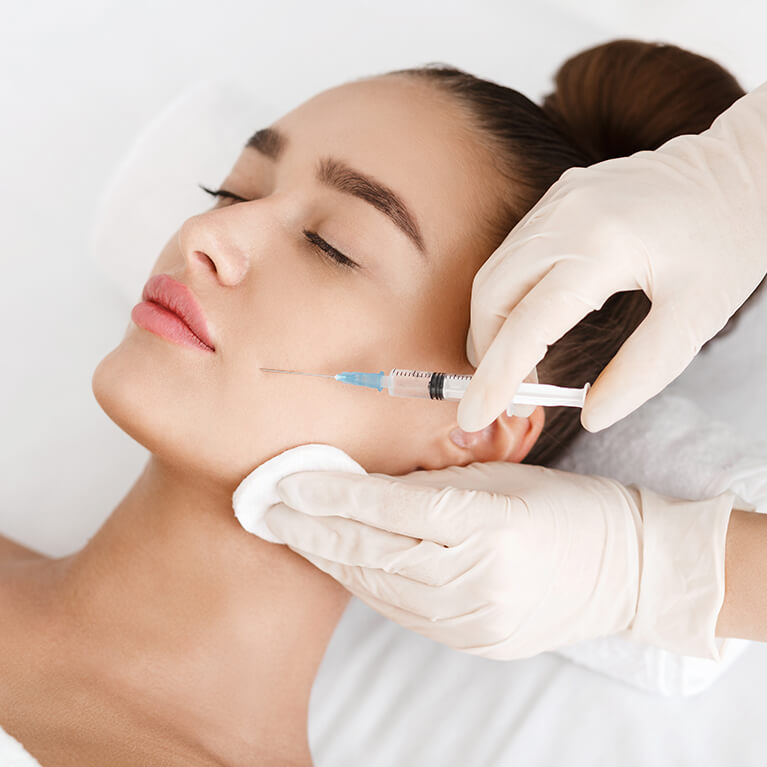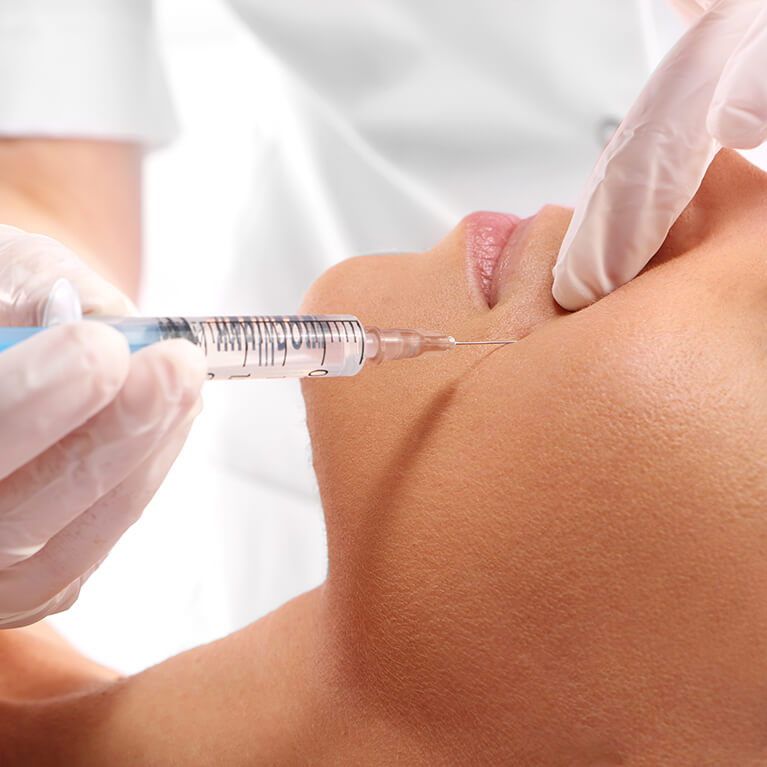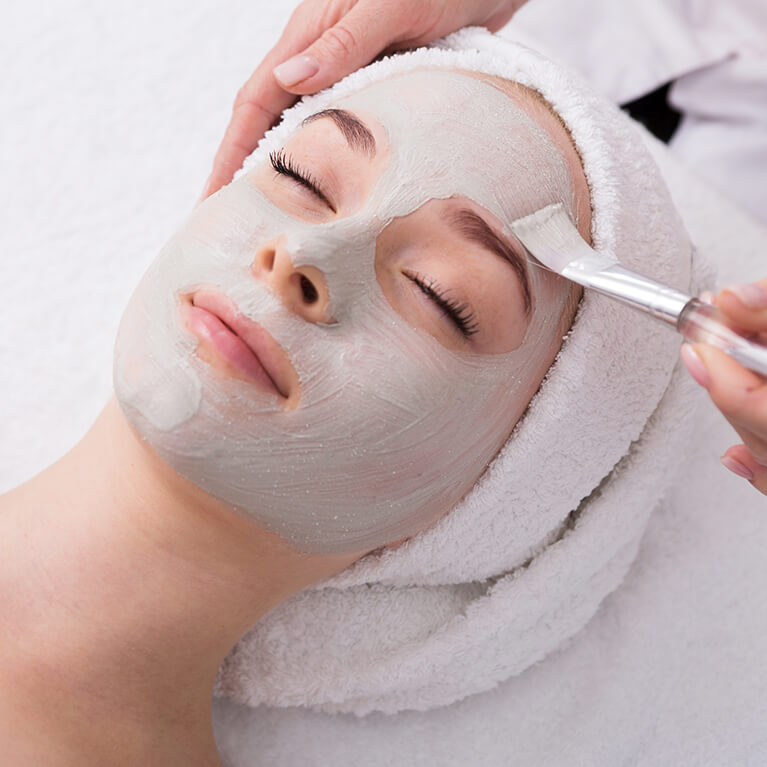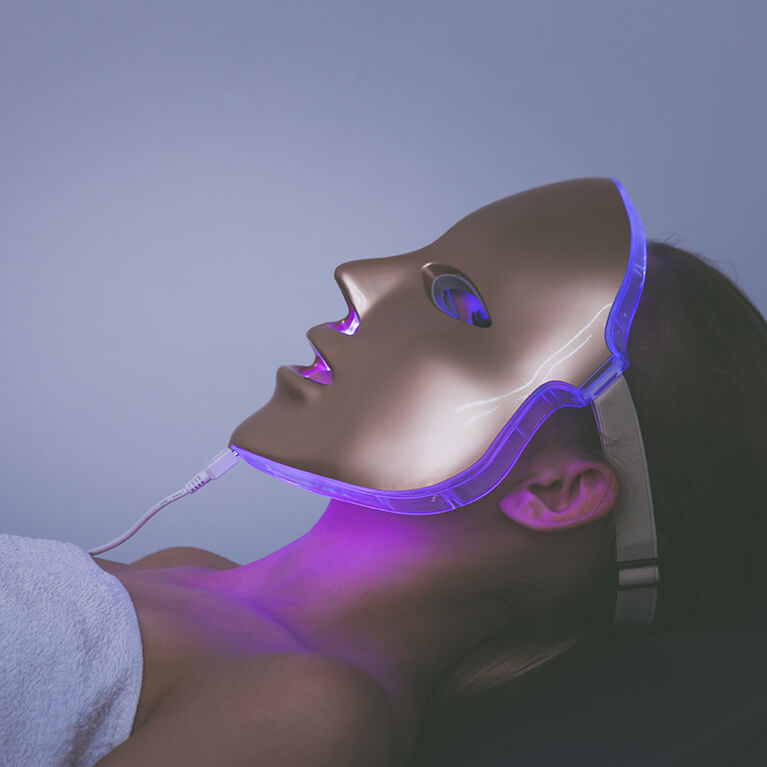MEDICAL FACIALS
Medical facials can target specific skin concerns such as acne, hyperpigmentation, and aging skin, using techniques such as chemical peels, microdermabrasion, and medical-grade extractions. The products used in a medical facial are typically stronger and more potent than those used in traditional facials and are tailored to each patient’s individual skin type and concerns. Medical facials can provide significant improvement in the appearance and health of the skin and are often recommended for patients looking for more intensive and targeted treatments.
Used to treat:
- Dull, ageing skin
- Sun damage
- Acne and oily skin
- Acne Scars
- Pigmentation
- Fine lines and wrinkles
- Sun/age spots and freckles
- Uneven skin, enlarged pores and blackheads
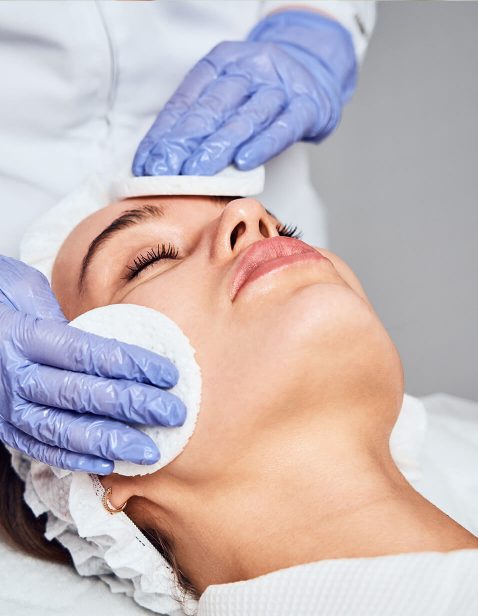
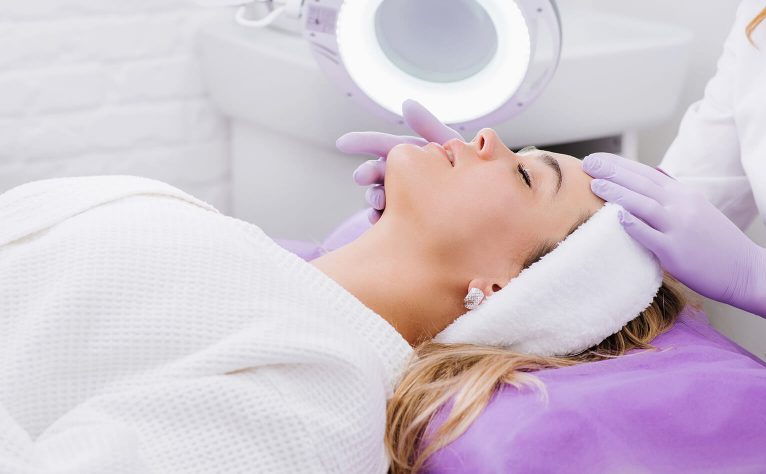
HOW IT WORKS
A facial is a multi-step skincare procedure that involves deep cleaning, exfoliating away dead skin cells, and addressing specific skin concerns using customised masks or peels. A trained aesthetician will analyse your skin during the treatment to determine the appropriate products and techniques to use, tailoring the facial to your specific skin type and concerns. The purpose of this treatment is to revitalise and nourish the skin through a series of steps including blemish extraction, massage, and moisturisation. Regular facials can not only improve the overall health and appearance of your skin but also help prevent future skin issues from developing.
from £90
Frequently Ask Question
We understand that you may have some questions about the treatment, and we want to make sure you have all the information you need. That’s why we’ve compiled a list of frequently asked questions below.
If you have any further inquiries or concerns, please do not hesitate to reach out to our team for assistance.
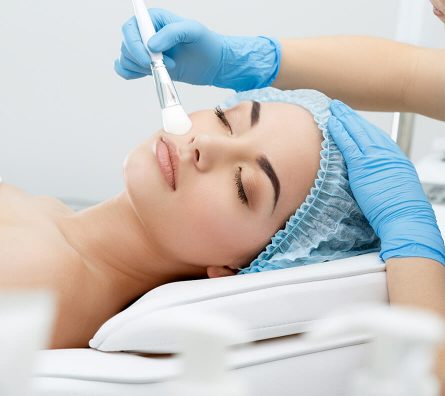
The treatment process typically involves cleansing, exfoliation, extraction, massage, peel, and the application of masks. Additionally, for some treatments, you may be requested to remove your top. Your specific treatment will be tailored to address your individual skin type and concerns.
To prepare for a facial, it’s important to arrive in a hygienic state, which means washing your face beforehand. Taking a shower beforehand can also be beneficial, as it helps to loosen the pores and prepare the body for detoxification. It’s also important to avoid wearing makeup to your facial appointment, as this can clog the skin and interfere with the treatment. Additionally, it’s recommended to skip using any topical face creams for at least a week prior to your appointment.
After a facial treatment, it’s important to follow some aftercare guidelines to maximize the benefits of the treatment. First, it’s recommended to wash your face gently on the following day after the facial. However, it’s important to avoid taking a shower immediately after as this can undo the effects of the treatment. It’s also advised to avoid wearing makeup and heavy skincare products after the facial. Makeup can sit in the pores for hours after application, preventing the skin from fully absorbing the benefits of the facial. To let your skin breathe, it’s recommended to avoid makeup before and after the treatment. Additionally, it’s not recommended to exercise after a facial as sweating can irritate the skin and undo the effects of the beauty products used during the treatment. Finally, it’s important to stay away from prolonged sun exposure after a facial. If you must go outside, wear protective clothing to prevent sun-damaged skin.
Usually, the results of the facial will last for about 4 – 6 weeks for most skin types.
Every 4 – 6 weeks.
A course of 6 treatments is recommended.
For some individuals, allergies may occur during a facial treatment, particularly for those who are not aware of their skin’s sensitivities. It is advisable to inquire about the facial procedures beforehand, particularly for those with acne-prone skin, as breakouts may occur. During the facial, the skin will be deeply cleansed to enhance the absorption of the active ingredients in the serums or moisturizers. However, itching or reddening of the skin may occur as a result of this cleansing. On the other hand, certain contraindications may prevent individuals from receiving a facial treatment, including viral infections like the cold, flu, or COVID-19, bacterial infections such as impetigo or conjunctivitis, fungal infections like ringworm, undiagnosed lumps or swelling, broken bones, and known sensitivity or allergy to certain products.
Facials are suitable for individuals who are going through hormonal changes, which typically begin during puberty. To achieve the best possible results, regular facials are recommended. Regardless of the time of year, facials can be done to improve the overall health and appearance of the skin.
Want to speak to us directly?
We invite you to schedule a consultation with our team of experts. Our consultations offer personalised advice and tailored recommendations to help you make informed decisions.
OUR TREATMENTS & SERVICES
MORE THAN 20 YEARS OF EXPERIENCE

